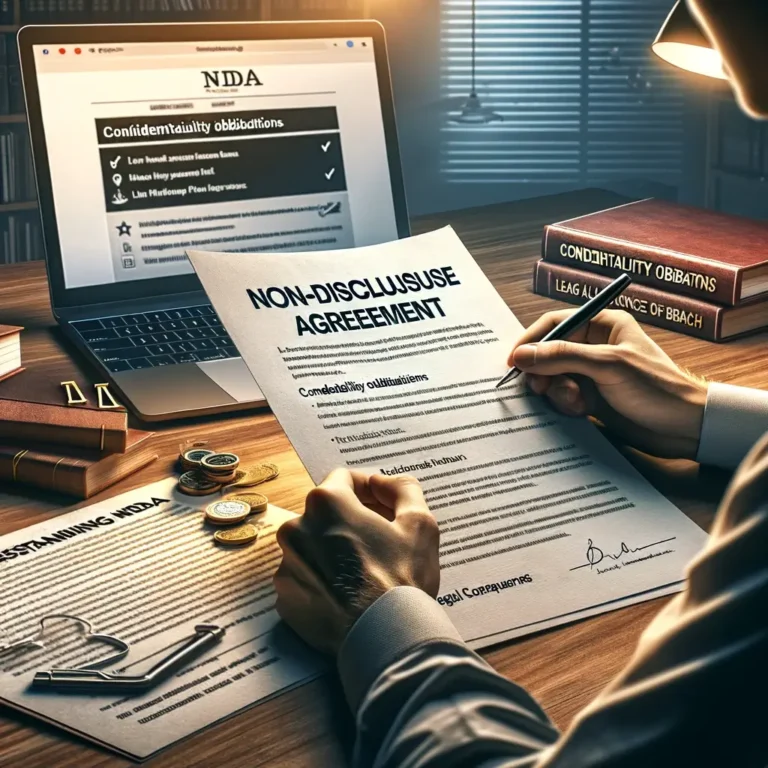In this article we have discussed about Trademark Infringement Litigation Process In India
Introduction to Trademark Infringement in India
A trademark is a unique symbol or word(s) used by a business to distinguish its goods or services from those of others. In India, trademarks are protected by law. However, when someone uses a trademark that is identical or deceptively similar to a registered trademark without permission, it leads to trademark infringement. This article guides you through the process of handling such infringements under Indian law, ensuring you understand how to protect your brand effectively.
Trademark Infringement Litigation Process in India
What Constitutes Trademark Infringement?
Trademark infringement occurs when a party uses a mark that is identical or confusingly similar to a registered trademark owned by another party, for similar goods or services, leading to confusion among consumers. The essence of infringement is the likelihood of confusion, deception, or mistake in the minds of the public.
Legal Framework for Trademark Protection
The Trademarks Act, 1999
In India, the Trademarks Act, 1999, governs the protection of trademarks. This Act provides the legal basis for the registration and protection of trademarks in India and sets out the procedure for dealing with infringement.
Steps to Take in Case of Trademark Infringement
Identifying Infringement
The first step is to determine whether an infringement has occurred. This involves comparing the trademarks to see if they are identical or deceptively similar and assessing whether they are used for similar goods or services.
Sending a Cease and Desist Notice
Before jumping into litigation, the trademark owner can send a cease and desist notice to the infringer. This notice demands that the infringer stop using the trademark and provides a chance to resolve the issue without going to court.
Filing a Lawsuit
If the infringer does not comply with the cease and desist notice, the trademark owner can file a lawsuit for trademark infringement under the Trademarks Act. The complaint should be filed in a district court where the infringement has occurred or where the defendant resides or carries on business.
You can read :- Role of Trademark Lawyer
The Litigation Process
Filing the Suit
The litigation process begins with the filing of the suit in the appropriate court, accompanied by evidence of trademark registration, instances of infringement, and the impact on the business.
Court Proceedings
The court will examine the evidence, hear arguments from both sides, and determine whether infringement has occurred. The proceedings may involve interim orders, such as injunctions to prevent further infringement until the final decision.
Remedies for Trademark Infringement
If the court finds in favor of the trademark owner, it can grant various remedies, including:
- Permanent injunction: Preventing the infringer from using the trademark
- Damages or an account of profits: Compensation for the loss suffered by the trademark owner
- Destruction of infringing goods: Ensuring that the infringing goods are destroyed
Conclusion: Protecting Your Trademark Rights
Trademark infringement litigation in India is a structured process designed to protect the rights of trademark owners. By understanding this process, businesses can effectively safeguard their brands against unauthorized use. It’s crucial to take prompt action against infringements to maintain the integrity and value of your trademark.
Remember, while litigation can provide a remedy for infringement, preventing infringement through trademark registration and monitoring is equally important. Always consult with legal professionals specializing in trademark law to navigate these issues effectively.
FAQs on Trademark Infringement Litigation Process in India
1. What is a trademark?
A trademark is a unique symbol, word, or phrase legally registered or established by use as representing a company or product.
2. What constitutes trademark infringement in India?
Trademark infringement occurs when a mark that is identical or deceptively similar to a registered trademark is used without authorization, leading to confusion among consumers.
3. How is a trademark protected in India?
Trademarks are protected under the Trademarks Act, 1999, which allows for the registration and legal protection of trademarks.
4. Can unregistered trademarks be protected against infringement?
Yes, unregistered trademarks can be protected under common law rights through the passing off action, but it’s more challenging than protecting registered marks.
5. How do I know if my trademark is being infringed?
If another business uses a mark that is identical or confusingly similar to yours for similar goods or services, causing confusion, your trademark may be infringed.
6. What is the first step to take if I suspect trademark infringement?
The first step is often to send a cease and desist notice to the infringer, asking them to stop using the mark.
7. What should a cease and desist letter include?
It should include details of the registered trademark, evidence of infringement, and a demand to stop the infringing activity.
8. What if the infringer ignores the cease and desist notice?
If the infringer does not respond or cease the infringement, you can file a lawsuit for trademark infringement.
9. Where should a trademark infringement lawsuit be filed?
A lawsuit should be filed in a district court where the infringement has occurred or where the defendant resides or does business.
10. What remedies are available for trademark infringement?
Remedies include a permanent injunction, damages or account of profits, and destruction of infringing goods.
11. Can I claim damages for trademark infringement?
Yes, you can claim damages or an account of profits if you successfully prove infringement.
12. What is an injunction?
An injunction is a court order that stops the infringer from using the trademark.
13. How long does trademark infringement litigation take in India?
The duration can vary widely, often taking several months to years, depending on the case complexity.
14. Is it necessary to hire a lawyer for trademark infringement litigation?
Yes, it’s highly recommended to hire a lawyer experienced in trademark law to navigate the legal process.
15. Can a foreign trademark owner file for infringement in India?
Yes, foreign trademark owners can file for infringement if their trademark is registered or well-known in India.
16. What is the role of the Trademarks Registry in infringement cases?
The Trademarks Registry is responsible for trademark registration and administration but does not handle infringement cases, which are decided by courts.
17. Can the use of a trademark in a domain name constitute infringement?
Yes, if the domain name causes confusion with a registered trademark, it can be considered infringement.
18. Are online marketplaces liable for trademark infringement?
Marketplaces are not typically liable for infringement by sellers but can be ordered to remove infringing listings under certain conditions.
19. What is passing off?
Passing off is a common law tort used to enforce unregistered trademark rights, protecting the goodwill associated with a service or product from misrepresentation.
20. How does passing off differ from trademark infringement?
Passing off does not require a registered trademark and focuses on protecting business goodwill from misrepresentation, while trademark infringement requires a registered trademark.
21. Can I oppose a trademark application if it infringes on my trademark?
Yes, you can file an opposition against a trademark application if you believe it infringes on your registered mark.
22. How is deceptive similarity determined?
Deceptive similarity is assessed by considering whether the marks are likely to cause confusion among the public regarding the origin of the goods or services.
23. What factors are considered in a trademark infringement case?
Factors include the similarity of the marks, the similarity of the goods or services, and the likelihood of confusion among consumers.
24. Can color combinations be trademarked and protected from infringement?
Yes, distinctive color combinations can be trademarked and protected if they have acquired distinctiveness.
25. What is a well-known trademark, and does it receive special protection?
A well-known trademark is recognized by a significant part of the public and receives broader protection, including against use on non-similar goods.
26. Can parody of a trademark constitute infringement?
It depends on the context; parodies that confuse consumers or dilute the trademark’s value can constitute infringement.
27. How can I monitor for potential trademark infringement?
You can monitor by regularly checking for unauthorized uses of your mark online, in trade directories, and through trademark watch services.
28. What is trademark dilution, and is it recognized in India?
Trademark dilution refers to the weakening of a trademark’s distinctiveness or reputation, recognized under Indian law for well-known trademarks.
29. Can I prevent others from registering a similar trademark?
You can oppose the registration or seek cancellation of a similar trademark if it infringes on your rights.
30. How important is trademark registration in protecting against infringement?
Trademark registration is crucial as it provides legal evidence of ownership and exclusive rights, making it easier to enforce against infringement.
















